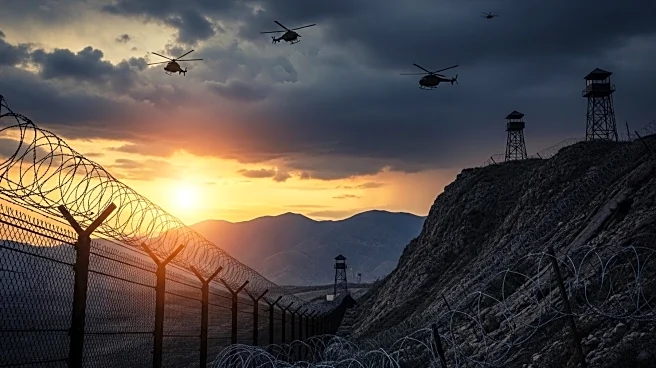What is the story about?
What's Happening?
Afghanistan's Taliban forces have launched armed reprisals against Pakistani soldiers along the shared border, accusing Islamabad of conducting air strikes on Afghan soil. The clashes are reported to be ongoing in several provinces including Kunar, Nangarhar, Paktia, Khost, and Helmand. The Taliban claims these actions are in retaliation for Pakistan's air strikes, which they allege violated Afghan sovereignty. Pakistan has not confirmed the attacks but has called on Afghanistan to stop harboring the Pakistani Taliban (TTP) on its soil.
Why It's Important?
The escalation of violence between Afghanistan and Pakistan highlights the fragile security situation in the region. The Taliban's accusations against Pakistan could further strain diplomatic relations and impact regional stability. The involvement of the TTP, a group accused of numerous attacks on Pakistani forces, adds complexity to the conflict. This situation could affect U.S. interests in the region, particularly in terms of counterterrorism efforts and regional peace initiatives.
What's Next?
The Taliban has warned of further retaliation if Pakistan continues to violate Afghan territory. This could lead to increased military engagements along the border, potentially drawing in international attention and intervention. Both countries may face pressure from global powers to de-escalate tensions and engage in diplomatic dialogue to resolve the conflict.
Beyond the Headlines
The ongoing conflict raises ethical concerns about the impact on civilian populations in border areas, who may face displacement and humanitarian challenges. The use of air strikes and military force in populated areas also poses legal questions regarding international law and the protection of non-combatants.

















